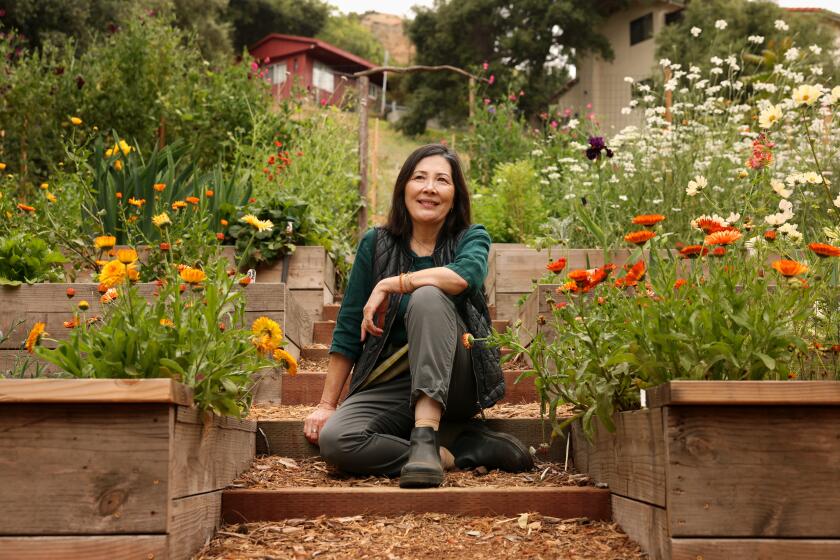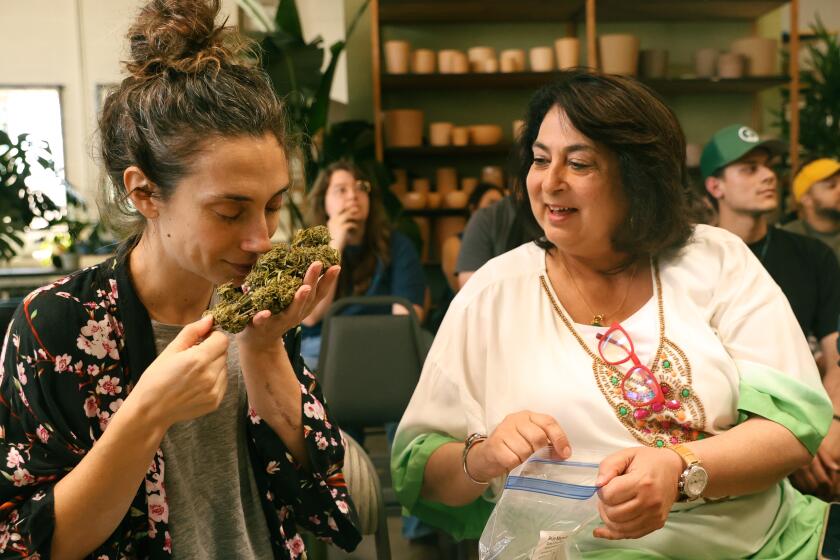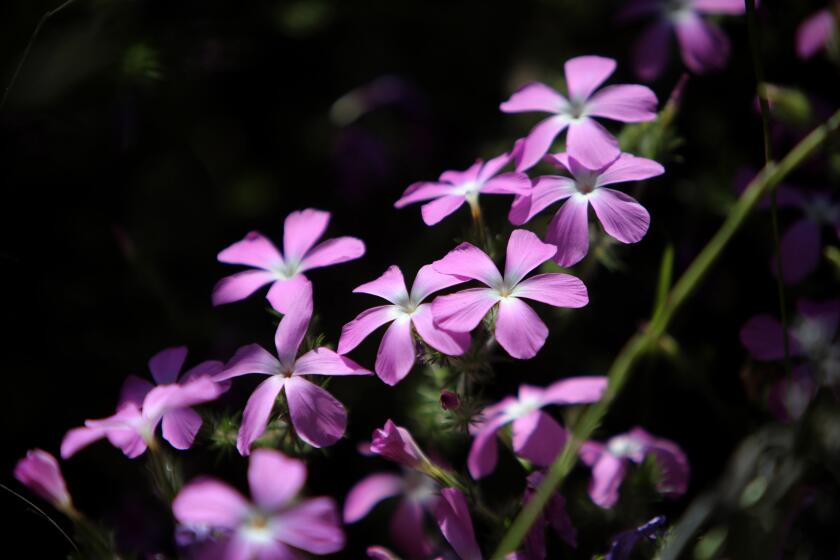Let ‘Em Eat Lotus--but Even if They Don’t, L.A. Celebrates
Lotus-eaters, in Homeric legend, are a people who ate of the lotus-tree, the effect of which was to make them forget their friends and homes, and to lose all desire of returning to their native country, their only wish being to live in idleness in Lotus-land.
--Brewer’s Dictionary of Phrase and Fable
Critics from the East sometimes call Los Angeles a land of lotus-eaters. This is meant as an insult.
Gat Lum doesn’t get it.
“My mother used to make lotus-root soup,” says Lum, who is of Chinese descent. “She’d say, ‘Drink the soup. It will clean your system out.’ ”
Lum is the coordinator of Los Angeles’ Day of the Lotus Festival, a weekend-long event at Echo Park that is a celebration of the city’s Asian and Pacific Islander cultures--some who eat lotus and some who don’t, some who follow Buddha’s teachings and some who don’t.
To heck with Homer. Consider the Buddhist view of the lotus, a rich bed of which has been blossoming with white and pink petals every summer for more than 50 years at the northern tip of palm-lined Echo Park Lake.
“The lotus grows out of the muck and the mud and produces this beautiful, fragrant flower,” explained Rev. Karuna Dharma, a Buddhist priest. “This is the way people can be through enlightenment, rising above their conditions, no matter how bleak.”
Los Angeles has its own way with traditions. The city’s Park and Recreation Department called the event the 12th annual one even though the first festival was held 17 years ago. The festival got started in 1972 “because we had Latino festivals and black festivals, but we really didn’t have anything about the Asian and Pacific Islander peoples,” said Jan Landrum, a director at a Chinatown recreation center. Several years were missed, including the last two, before three sponsors--Pepsi-Cola Co, KBIG radio and Combat pesticide--agreed to support the event.
Dharma burned incense and sang Vietnamese hymns as she blessed the dragon boats, one of the featured attractions. The festival has several arenas: a fragrant circle of 21 food emporiums (10 of which are Thai); a crafts tent that includes Japanese origami (the art of paper folding); Korean masks, Chinese knots and Hmong needlework; a performance stage that features singing, dancing and kung fu fighting; and, across the bridge to Echo Park Island, a display of plants and flowers valued at nearly $1 million.
Crowds would gather to watch “candy artist” Shan Ichiyanagi do his magic. In two minutes, Ichiyanagi would take a lump of rice candy on a stick and deftly mold it into a unicorn or a winged dragon. He sold the first few at $2, later raising the price to $3.
The artwork lasts “from two seconds to a few days,” Ichiyanagi cautioned customers. “Depends how you handle it.”
Cockroach Display
Smaller numbers visited the Combat Roach Control System display. One of the three financial sponsors for the festival, Combat erected a booth on Echo Park Island to show off “cockroaches of the world.” A Combat competitor, the Raid pesticide company, had a similar display last November in an Eastside recreation center.
The Lotus Festival represents one of the few occasions when different Asian and Pacific Islander cultures are brought together.
“This is important,” said Tia Tia, minister of a Samoan Methodist church in Carson, whose congregation had been accustomed to the isolation of island life. “The problem I’m facing at church is that many people do not know how to adapt themselves to the culture here. It is important for Samoans to get to know the people around them.”
At every turn, it seemed, was another example of Los Angeles’ cultural mix. Festival-goers were of every ethnic group, as were the kung fu fighters. T-shirts advocating democracy in the People’s Republic of China were sold by an Anglo entrepreneur. The origami expert was named Neil Eisman, and even Rev. Karuna, the Buddhist priest, was born Joyce Pettingill. Then again, one of tonight’s headline acts is Robert Kim, an Elvis impersonator.
Ancient Tradition
A Latina politician, Councilwoman Gloria Molina, found herself joining in an ancient Chinese tradition in honor of another politician as she climbed into a dragon boat to lead a crew of staff members against a boat led by a TV sportscaster known as “Vic the Brick.”
More than 2,900 years ago, in the ancient Chinese state of Chu, the poet and politician named Ch’u Yuan did not join in the celebration of the summer solstice. Instead, despondent over governmental corruption, he threw himself to his death in the Mi Lo River. Dragon boat races began the next year to honor him.
Molina has been outspoken about recent tribulations at City Hall. She did not, however, throw herself into the drink. She raced to win.
“Beat ‘em by a dragon head,” Molina said.



